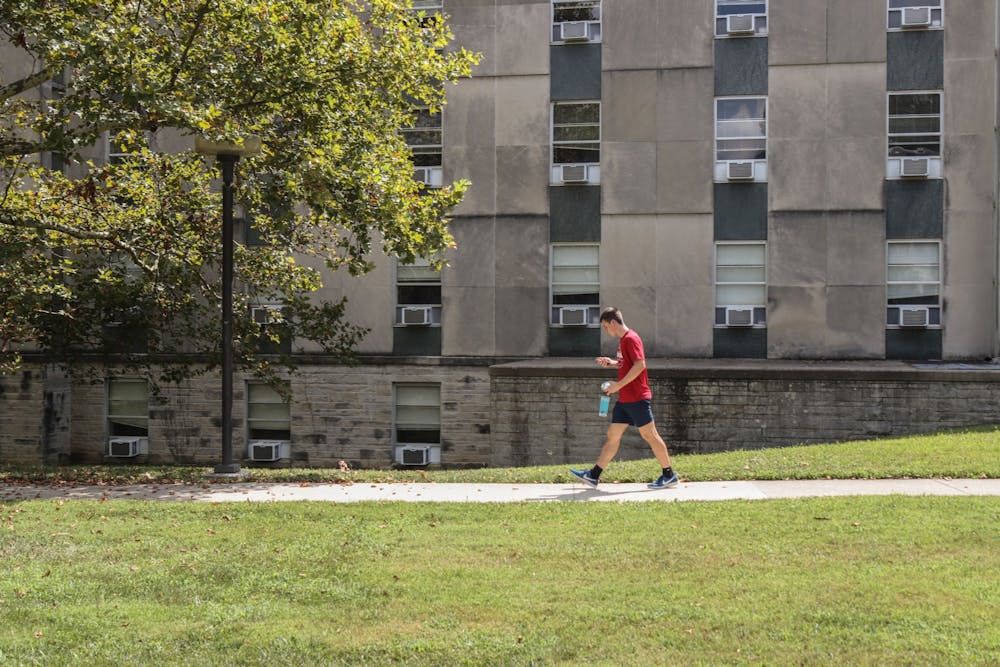If an IU student tests positive for COVID-19 or is unvaccinated and in close contact with someone who tests positive, they must temporarily move to quarantine and isolation housing for at least 10 days.
This housing is located in two of the six buildings at Ashton Center and is intended for students who do not have anywhere to isolate off campus. These protocols are almost identical to the ones last school year, except now the COVID-19 vaccination status of the student is considered, meaning vaccinated students do not have to quarantine if they are a close contact.
Ashton is implementing strict quarantine policies, Director for Residential Life Sara Ivey Lucas said. The students have a bathroom schedule, 30 minutes of socially distanced exercise outside and must have food delivered to the residence center.
IU spokesperson Chuck Carney said there is a third-party vendor that cleans and disinfects the building frequently based on guidelines set up by the Office of Environmental Health and Safety at IU.
Carney said linens, bedsheets and pillow covers are provided, but students are recommended to have a “go-bag” with their necessities in case they test positive and need to be transported to Ashton quickly.
“It is intended to be functional for what students need,” Carney said.
Ivey Lucas said their quarantine policies are based on the pandemic situation happening beyond the university because COVID-19 is still surging across the U.S. IU will continue to provide quarantine services, such as isolation housing, as long as it is necessary, she said.
“Hopefully with the vaccine uptake continuing to improve across the country, we can be in a space where we won’t need to offer this kind of housing indefinitely,” Ivey Lucas said. “But that’s bigger than Indiana University.”
Senior Brittany Dobbins said Ashton is not the most ideal place to live and is bland. She said life inside the residence hall is not enjoyable, but students should consider the benefits of isolation, even if they have the chance to go home. Students can only go home if they have a place to go close to campus.
“Don’t fear it,” Dobbins said “If that’s your only place to go, by all means go there so you’re away from people.”
Dobbins said she tested positive for COVID-19 twice, once last year and once this year.
Although she could have stayed with family off campus, she did not want to put anyone else at risk and just focus on getting better, she said.
“That’s why I chose to go to Ashton,” Dobbins said. “I would never want to put somebody’s health at risk.”
Dobbins said she spent her days in Ashton extremely sick, even passing out in the bathroom three times throughout her stay, and she was hospitalized this year because of COVID-19.
“I was miserable the whole time I was there,” Dobbins said. “I was depressed and I felt like shit. There were days I couldn’t get up because I was so sick from COVID.”
Dobbins said she has a religious exemption from the COVID-19 vaccine, but she has since considered getting the vaccine after her experience with the virus. Living in isolation and becoming so sick has opened her eyes to the benefits of the vaccine, she said.
“I have changed my mind,” Dobbins said. “I still have my reservations about the vaccine but I don’t want to die. I have too much to live for.”




